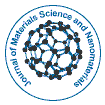Unsere Gruppe organisiert über 3000 globale Konferenzreihen Jährliche Veranstaltungen in den USA, Europa und anderen Ländern. Asien mit Unterstützung von 1000 weiteren wissenschaftlichen Gesellschaften und veröffentlicht über 700 Open Access Zeitschriften, die über 50.000 bedeutende Persönlichkeiten und renommierte Wissenschaftler als Redaktionsmitglieder enthalten.
Open-Access-Zeitschriften gewinnen mehr Leser und Zitierungen
700 Zeitschriften und 15.000.000 Leser Jede Zeitschrift erhält mehr als 25.000 Leser
Abstrakt
Enhancement of the Electric Storage Battery Using the Super Capacitance
Ahmed Mahmoud Soliman*
In case PV systems characterized by high peak power requests, the battery system is usually the most expensive part within the system, oversized in order to provide the needed peak discharge currents. The integration of super capacitors with battery cells optimizes power supply for loads equipment requiring very high power for short times (such as satellites, mechanisms, and transmitters,), i.e. it can increase battery lifetime and involve a significant mass reduction of the energy storage system. Such mass saving is a function of peak power/average power ratio .Super capacitors is electrochemical devices able to store energy through a physical process. The absence of chemical reactions grants higher power densities and higher charge/discharge currents, but lower energy densities with reference to common battery cells. Such characteristics make super capacitors particularly suitable for the integration in hybrid energy storage systems, e.g. to support Li-ion battery cells in case of peak power requests. It is worth noting that the integration of electrochemical capacitors with battery cells requests an accurate evaluation of the problem areas related to the use of such technology in the space environment and of the impacts on both Electrical Power Subsystem and Spacecraft System, and so on.
Zeitschriften nach Themen
- Allgemeine Wissenschaft
- Biochemie
- Chemie
- Genetik und Molekularbiologie
- Geologie und Geowissenschaften
- Immunologie und Mikrobiologie
- Klinische Wissenschaften
- Krankenpflege und Gesundheitsfürsorge
- Landwirtschaft und Aquakultur
- Lebensmittel & Ernährung
- Maschinenbau
- Materialwissenschaften
- Medizinische Wissenschaften
- Pharmazeutische Wissenschaften
- Physik
- Sozial- und Politikwissenschaften
- Umweltwissenschaften
- Veterinärwissenschaften
Klinische und medizinische Fachzeitschriften
- Anästhesiologie
- Augenheilkunde
- Betrieb
- Dermatologie
- Diabetes und Endokrinologie
- Gastroenterologie
- Genetik
- Gesundheitspflege
- Immunologie
- Infektionskrankheiten
- Kardiologie
- Klinische Forschung
- Medizin
- Mikrobiologie
- Molekularbiologie
- Neurologie
- Onkologie
- Pädiatrie
- Pathologie
- Pflege
- Toxikologie
- Zahnheilkunde

 English
English  Spanish
Spanish  Chinese
Chinese  Russian
Russian  French
French  Japanese
Japanese  Portuguese
Portuguese  Hindi
Hindi